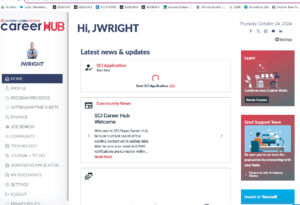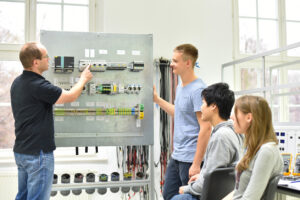Excellent Communication Skills
1. Communication is key in the healthcare industry. Medical assistants need to communicate effectively with patients, physicians, nurses, and other healthcare professionals. They must be able to listen attentively, ask appropriate questions, and convey information clearly and accurately. Excellent communication skills also include empathy, compassion, and the ability to provide emotional support to patients and their families.
Strong Organizational Skills
2. Medical assistants are responsible for managing patient appointments, maintaining patient records, managing billing and coding, and handling administrative tasks. Strong organizational skills are crucial to ensure that all these tasks are handled efficiently and effectively. Medical assistants need to be able to prioritize tasks, manage their time well, and maintain meticulous attention to detail in a fast-paced environment.
Clinical Competence
3. Medical assistants play a vital role in assisting physicians with clinical procedures, such as taking patient histories, measuring vital signs, preparing patients for examinations, drawing blood, and administering medications. They need to be clinically competent and skilled in using medical equipment, as well as following infection control protocols. Medical assistants also need to stay up to date with the latest developments in medical technology and procedures to provide the best care to patients.
Computer Literacy
4. In today’s healthcare industry, technology plays a significant role in managing patient information, scheduling appointments, billing and coding, and other administrative tasks. Medical assistants need to be proficient in using electronic health record (EHR) systems, practice management software, and other healthcare-related software. They should also be familiar with basic office productivity tools, such as word processing, spreadsheets, and email, to efficiently manage administrative tasks.
Professionalism and Ethics
5. As healthcare professionals, medical assistants need to adhere to high standards of professionalism and ethics. They must maintain patient confidentiality, demonstrate integrity, and uphold ethical standards in all their interactions with patients and healthcare colleagues. Medical assistants are often the first point of contact for patients, and their professionalism and demeanor can greatly impact patient satisfaction and trust.
Flexibility and Adaptability
6. The healthcare industry is constantly changing, and medical assistants need to be able to adapt to new technologies, procedures, and regulations. They should be flexible in their roles, willing to learn and update their skills, and adapt to different work environments, such as hospitals, clinics, or specialty practices. Medical assistants also need to be able to handle stressful situations with calmness and professionalism, as healthcare can often be demanding and challenging.
Teamwork and Collaboration
7. Medical assistants work closely with physicians, nurses, and other healthcare professionals as part of a team. They need to be effective team players, able to communicate and collaborate with colleagues to provide coordinated patient care. Medical assistants should be willing to help others, share knowledge and expertise, and contribute to a positive and supportive work environment.
In conclusion, excelling as a medical assistant in today’s healthcare industry requires a diverse skill set that encompasses excellent communication skills, strong organizational skills, clinical competence, computer literacy, professionalism and ethics, flexibility, and adaptability, as well as teamwork and collaboration. By possessing these top skills, medical assistants can contribute to the efficient functioning of healthcare facilities, provide high-quality patient care, and contribute to positive patient outcomes. Continuous learning and professional development are also crucial to stay updated with the latest advancements in healthcare and excel in this dynamic and rewarding profession.
Get Started Today
According to the U.S. Bureau of Labor Statistics, employment of medical assistants is projected to grow 16 percent from 2021 to 2031, much faster than the average for all occupations.*
Interested in pursuing a career as a medical assistant? SCI can help train you on the skills needed through its medical assistant training program.
Southern Careers Institute focuses on equipping interested individuals with the most appropriate skills that may increase their chances of getting employed. Contact us today to seek more information about the medical assistant program at SCI.
*Southern Careers Institute (SCI) does not guarantee employment or a starting salary upon graduation, completion, or withdrawal from SCI. It is not required to attend SCI to attain a job or earn a certain salary in a field of employment. Past students’ outcomes, starting salaries, or job prospects are not indicative of those for future and current students.
Displayed salaries and job outlook data do not reflect the prospects of Southern Careers Institute graduates’ job placement outcomes and starting salaries. U.S. Bureau of Labor Statistics employment data, job prospects, and salary data sourced for (insert specific metro and job page) does not reflect data applicable to entry-level positions.











